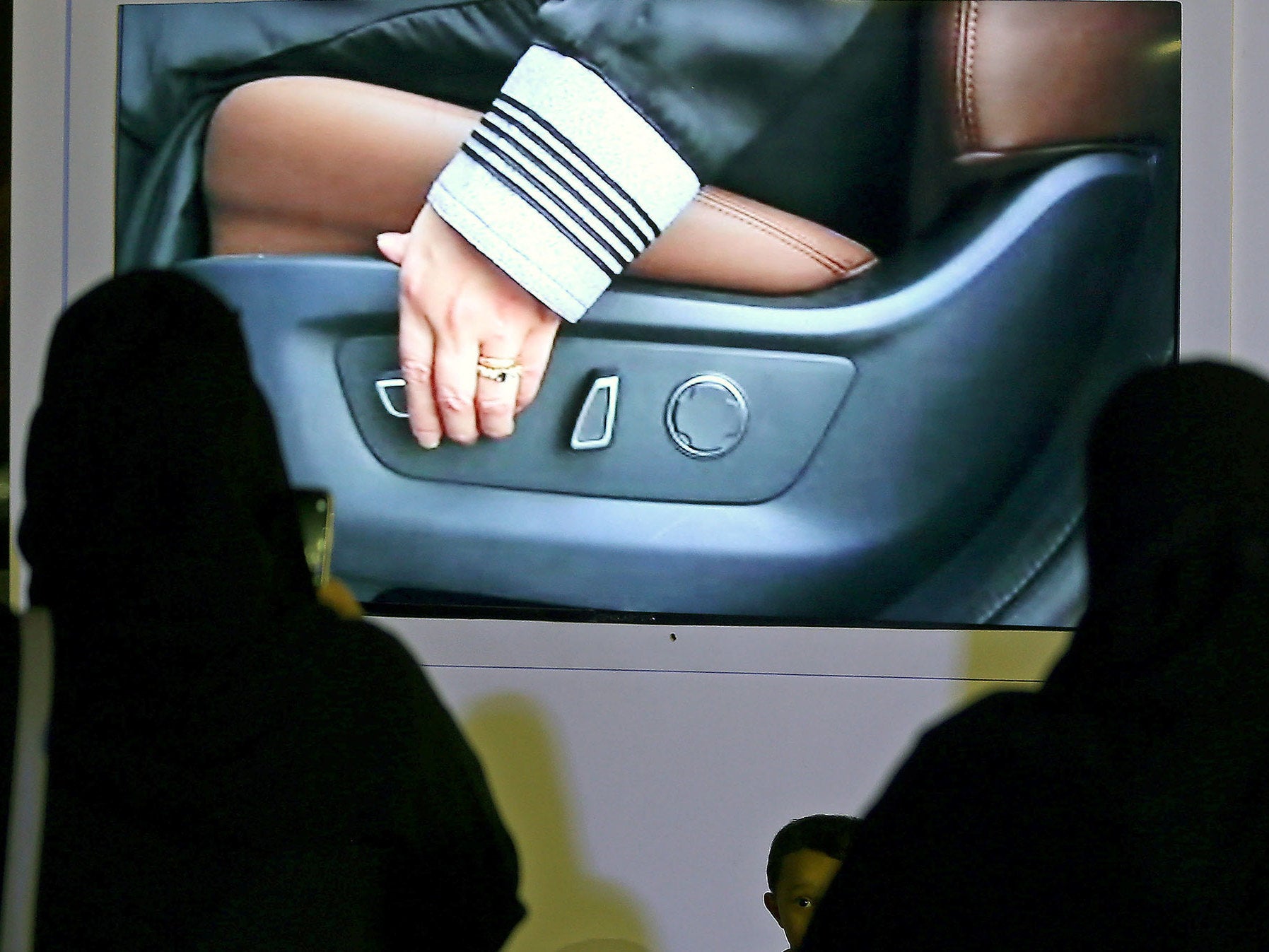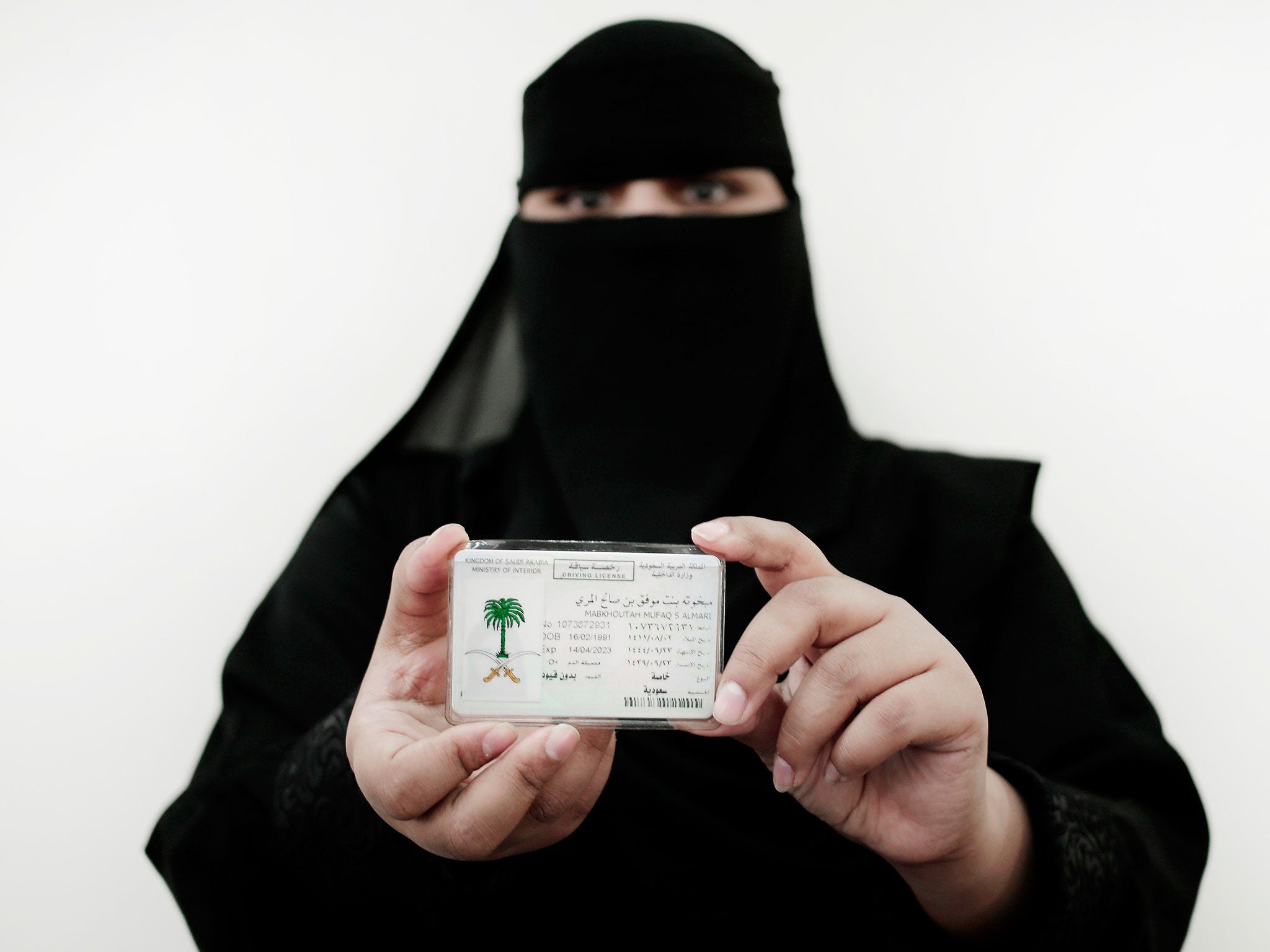Saudi Arabia women's driving ban lifted: With excitement and apprehension, Saudi women gear up for first day on the road
Deeply symbolic move granting women greater independence celebrated across the country - but rapid pace of change creates fresh problems
Your support helps us to tell the story
From reproductive rights to climate change to Big Tech, The Independent is on the ground when the story is developing. Whether it's investigating the financials of Elon Musk's pro-Trump PAC or producing our latest documentary, 'The A Word', which shines a light on the American women fighting for reproductive rights, we know how important it is to parse out the facts from the messaging.
At such a critical moment in US history, we need reporters on the ground. Your donation allows us to keep sending journalists to speak to both sides of the story.
The Independent is trusted by Americans across the entire political spectrum. And unlike many other quality news outlets, we choose not to lock Americans out of our reporting and analysis with paywalls. We believe quality journalism should be available to everyone, paid for by those who can afford it.
Your support makes all the difference.Technically, there isn’t a written law in Saudi Arabia banning women from driving. Instead, like so much else in the country, it’s a combination of religious diktats, social pressure and purposefully convoluted licensing rules which has effectively stifled women’s freedoms and make it illegal for them to get behind the wheel.
When a royal decree goes into effect on Sunday, for the first time in decades, that is going to change. The independence is going to revolutionise life for many - including Pilar al Amad, from Kohbar, on Saudi Arabia’s east coast. If the rules had changed a few months earlier, she says her recent family tragedy may have been a little easier to deal with.
“I was pregnant with twins and my husband was away with work when I went into labour,” she said.
“I had to rely on people from work to drive me to the hospital and it was really stressful. I lost one of my twins a week after delivery. I feel like if I had just been able to drive the whole situation would have been easier.”
Pilar’s surviving baby daughter has been in an intensive care unit for the last three months.

“I can’t wait to be able to come and go as I please without having to go when my husband goes or else pay for an Uber,” she added.
Lifting the driving ban is a deeply symbolic move in a country where the guardianship system means that most decisions in a woman’s life are made for her by her father, husband or son.
The kingdom’s newly appointed and immensely powerful crown prince, 32-year-old Mohammed bin Salman, is the driving force behind the new measure aimed at liberalising Saudi society - which will, crucially, bring more women into the workforce.
Allowing women to drive is part of ‘Vision 2030’, an ambitious roadmap of socio-economic reforms designed to wean the kingdom off its dependence on oil revenue. Other bold moves include curbing the powers of the once notorious religious police and even a promise the conservative kingdom will return to a more “moderate” form of Islam.
Before Prince Mohammed was appointed crown prince a year ago, such rapid change was unthinkable. In visits before and after his appointment, however, The Independent has witnessed how many ordinary Saudis have begun to relax into the changes.
In the Red Sea city of Jeddah, more and more women are choosing to forego wearing headscarves altogether, and shops sell abayas - the cloak-like robe women must wear by law - in navy, grey and white as well as black. Even in the more conservative desert capital, Riyadh, people now blast Western pop music from cars and groups of teenagers - both boys and girls - roam around parks and malls unsupervised.
Sunday’s historic moment is somewhat overshadowed by the arrests of 17 prominent women’s rights activists in the weeks leading up to the lifting of the ban.
While eight have been released on bail since, the rest have still not been charged and have not been allowed access to their families or lawyers.
The arrests have widely been viewed as an attempt to intimate Saudi Arabia’s tiny activist community - and serve as a reminder to everyone that change in the kingdom will only come from the top down.
Despite the crackdown, though, excitement for Sunday is building. Newspapers and television stations across the country have gone into overdrive celebrating “history in the making”.
Pink “ladies’ parking” spaces have sprung up in major cities and community events focussing on family road safety organised under the slogan “Tawakkali wa Intaliqi”, or ‘Have Faith and Drive”, are planned across the country tomorrow.

“Everyone is embracing the changes,” said Susan Newbon, a driving instructor from South Wales who is training up Saudi women to teach their own driving students and hold exams.
“This is a young nation, where people know change is overdue. It’s logistically a massive undertaking but Saudis are more than ready to be able to do this. There’s a real sense of celebration.”
Many challenges are still waiting in the wings. Complex rules on the mixing of genders in work and social environments mean it’s not clear whether women-owned businesses or female employees can mix with male customers and clients in certain industries; the threat of harassment and backlash from religious conservatives is also a problem feared by many women.
The long overdue social reforms are also being ushered in in part to sweeten a bitter pill: the House of Saud has been badly hit by a global plunge in oil prices since 2015.
Women are being ushered into the workforce, but unemployment already reached a high of 12.8 per cent in 2017. The government introduced its first-ever VAT (at 5 per cent) on 1 January and has begun phasing out fuel subsidies - meaning that while women will be able to get behind the wheel from next week, it will cost a lot to fill up the tank, and there aren’t enough jobs for everyone to drive to.
Mohammed bin Salman’s reforms are more a continuation of the House of Saud’s long-term thinking than an out of the blue new agenda, David Butter, an associate fellow at London’s Chatham House, told The Independent.
Nonetheless, the rate of recent change has been dramatic. The prince’s critics see the women’s driving issue as a “stunt to boost [his] credentials in the West” and as cover for attempts to consolidate his power, Mr Butter added.
“Lifting the driving ban will provide a lot more scope for women to participate in the workforce and society,” he said. “But the changes do raise all sorts of questions.”

Join our commenting forum
Join thought-provoking conversations, follow other Independent readers and see their replies
Comments